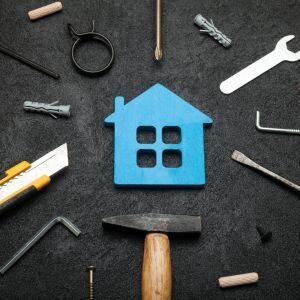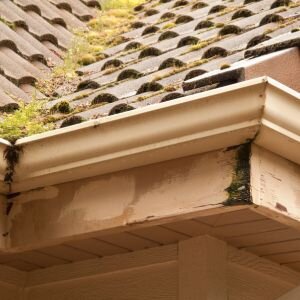
Understanding the Real Estate Market in Dallas, Texas
There are good chances in the Dallas real estate market for people who want to sell homes that need work but don’t need to be fixed up. Dallas continues to draw buyers looking for homes in all kinds of situations because it has a stable economy and a growing population. Many investors look for properties that are undervalued so they can fix them up and sell for a profit in the future. This makes homes that need repairs especially attractive.
Trends in the neighborhood are also important. For example, property prices often go up in areas that are being revitalized, which makes them great places for investors. If sellers are aware of these changes, they can better prepare their homes to sell. Even for homes that need work, being close to schools, shops, and public transportation is still a big selling point.
By tapping into buyer demand for as-is homes, sellers can avoid renovation costs while still appealing to serious investors. If you’re searching for a reliable company that buys homes in Dallas, give us a call at (214) 617-1510 for a no-obligation offer. With the right knowledge of market trends, a fixer-upper can still attract competitive offers in Dallas.
Key Factors to Consider Before Selling a Fixer-upper in Dallas
If you want to sell a fixer-upper in Dallas, you need to keep a few important things in mind that affect buyer interest and price. To begin, you should have a good grasp of the nearby housing market. Know which areas are popular and how your home stacks up against others in the area.
Another important step is to set prices that are reasonable. If you price your home too low when it clearly needs fixes, buyers will likely not be interested, but if you price it too high, you may lose value. Sellers should also point out things about the home that buyers will like, like a big lot, being close to schools, or the chance to make money as an investment.
Working with an experienced real estate agent can also provide a significant advantage. Agents familiar with fixer-upper sales know how to present your property in a way that draws in cash buyers and investors. Finally, understanding Texas disclosure laws is essential to avoid legal issues down the road. By weighing these factors carefully, sellers can maximize their profit while ensuring a smoother transaction process.
How to Price Your Home Needing Repairs in Dallas Effectively
When setting the price of a Dallas fixer-upper, you have to weigh the cost of fixes against the home’s possible value. Start by looking into similar sales that have happened in your area, focused on homes that are in similar condition. This gives you a reasonable number and keeps you from setting prices that are too high or too low.
Think about how much investors might spend on fixes and whether the area is good enough to ask for a higher price. Buyers who are ready to spend more often choose to buy homes in Dallas neighborhoods that are growing or being redeveloped, even if the homes need a lot of work. It’s important to be honest about how much something is worth. If you overprice, the sale will stop, and if you underprice, you’ll lose money.
Consulting with a real estate agent familiar with fixer-uppers can provide insight into investor psychology and competitive pricing. If you’re unsure how to position your home, check out our process on how we buy a house—it explains how buyers evaluate homes like yours. The goal is to find that “sweet spot” where buyers see potential while you still maximize your return.
Marketing Strategies for Homes Requiring Renovations in Texas
If you want to sell a fixer-upper in Dallas, you need to have good marketing. Drawing attention to the home’s unique potential can help buyers see past its present flaws. Pay attention to where the property is located. Dallas has great schools, amenities, and a booming economy, which can make repair worries less important.
Using professional photos and even virtual tours allows buyers to visualize possibilities. Highlight keywords in listings such as “investment opportunity” or “prime location” to capture investor interest. Social media platforms and online real estate sites are also excellent ways to expand reach and attract both local and out-of-state buyers looking for Texas investments.
A good real estate agent who knows how to sell “as is” homes can help you with your marketing plan and make it more appealing to the right kind of buyer. Your Dallas fixer-upper can stand out from the rest if you market it well. This will make it more appealing to buyers who are looking for a good job.
Essential Repairs That Boost Home Value Before Selling in Dallas
Some fixes can really raise the value of your Dallas home, even if you don’t want to do a full renovation. Fixing simple things like a roof that leaks, windows that are broken, or making sure the HVAC system works right away can make your home more appealing to buyers.
Buyers are often wary of big secret costs, so making sure basic things like plumbing and electricity are safe can calm their fears. These fixes also make the outside of the house look better, which is helpful for showings. Small changes, like new paint or updated fixtures, can also help your fixer-upper stand out from the others without spending a lot of money.
In a competitive market like Dallas, even modest improvements show buyers that the home is functional and worth their attention. Sellers who focus on these essentials often attract more offers and can command higher prices compared to those who sell without addressing any repairs at all.
Navigating Legal Aspects When Selling Property with Issues in Texas

In Texas, buyers must be honest about any problems they know about the property. This makes legal disclosure an important step when selling a fixer-upper. Giving full and correct information builds trust and keeps you out of trouble after the sale.
If your property has structural, electrical, or plumbing concerns, they must be included in the disclosure. Sellers who attempt to hide problems may face legal and financial consequences later. For this reason, many homeowners choose to consult a real estate attorney to ensure their paperwork is compliant and clear.
You’ll feel more confident when negotiating with buyers if you know the Texas rules about as-is sales, financing, and contracts. When buyers think the deal is honest and clear, they are more likely to go through with it. By taking care of the legal issues correctly from the start, you not only avoid problems, but you also show that your home is a real and good investment.
Pros and Cons of Selling Homes As-is Versus Making Repairs
In Dallas, people who want to sell a house that needs work often can’t decide whether to sell it as-is or fix it up first. You can avoid the stress of repairs by selling the house as-is, which can save you time and money up front. Investors who plan to do their own fixes often like this method.
In exchange, buyers may lower their offers to cover the costs of the changes that need to be made. On the other hand, making only a few fixes can improve curb appeal, bring in more traditional buyers, and maybe even lead to higher offers. But fixes cost money and take time, which is something that not all sellers can handle.
A lot of the time, the choice relies on your budget, your schedule, and the neighborhood in Dallas where you live. This could be the fastest and most profitable way to sell if the market is hot. If the market is slow, making small fixes could help your home sell faster. You will be able to choose the plan that best fits your goals if you carefully consider both sides.
Attracting Buyers for a Home That Needs Work: Tips and Tricks
Selling a home that needs work requires targeting the right buyers. Highlight the investment potential of your property, especially in Dallas where demand for affordable housing and flips is strong. Emphasize location benefits—proximity to schools, public transport, and thriving neighborhoods often outweigh repair needs for many investors.
Good listing photos are critical. Show the home’s structure and unique features to help buyers picture the possibilities. Set a fair asking price that reflects both the current condition and future value of the property, ensuring it draws interest from budget-conscious buyers.
Expand your reach by using online listings, social media, and neighborhood real estate groups. Also, holding open houses can help buyers see the property for themselves. By hiring real estate agents who specialize in foreclosed homes, you can get even more publicity.
As trusted cash home buyers in Anna, we make fair cash offers, take care of the paperwork, and close on your timeline. By positioning your home as a project with potential, you can connect with motivated buyers ready to act quickly.
Financing Options for Buyers Interested in Fixer-uppers
When selling a fixer-upper in Dallas, it’s important to understand the financing options available to potential buyers, as these can determine how quickly your home sells. Many buyers interested in properties needing repairs turn to specialized loans designed for renovation projects. A common choice is the FHA 203(k) loan, which lets buyers combine the purchase price with repair costs into one mortgage. This helps them tackle upgrades without draining their savings.
Additionally, Fannie Mae’s HomeStyle Renovation loan offers adaptable terms and lets buyers pay for both small and major fixes. Normal loans are also available to buyers with good credit, but the home usually has to meet certain standards for being livable before the loan is approved.
By mentioning these financing tools in your listing or showings, you make your home more attractive to serious buyers who are ready to invest. As trusted cash home buyers in Dallas, we make fair cash offers, take care of the paperwork, and close on your timeline. Highlighting these options broadens your buyer pool and positions your fixer-upper as an accessible investment in Dallas’s fast-moving market.
How Location Affects the Sale of Repair-needy Homes in Dallas
When selling a fixer-upper in Dallas, location is one of the most important things to think about. Buyers often care a lot about the area around a home, sometimes even more than how it looks. Homes that are close to good schools, shopping places with lots of people, or public transportation tend to get more interest, even if they need a lot of work. Being close to parks and cultural sites can also make a home more appealing, especially to buyers who think they can make a home in a popular area look better by fixing it up.
Fixer-uppers in less attractive areas, on the other hand, may have more problems. If there aren’t many services in the area or people are worried about their safety, buyers will probably expect the asking price to be lower. The sellers must then make up for it by either setting a fair price or pointing out the home’s special features that make it worth the price.
Future growth also matters. Dallas neighborhoods with ongoing development projects or revitalization plans can add long-term appeal, making buyers more willing to invest despite repair needs. Understanding these location-driven factors helps sellers market their properties strategically and set realistic expectations.
Staging Techniques for Homes Needing Significant Renovation
The way a house is shown to potential buyers can affect how they feel about it, even if it needs a lot of work. You don’t have to spend a lot of money to stage a fixer-upper. All you have to do is make the house look inviting so buyers can imagine what it could be. First, clean out every room to make them look bigger and better for what they’re used for. When you combine neutral decor with simple furniture setups, you can show off space and flow without drawing attention to flaws.
Lighting also plays a key role. Brightening darker areas with lamps or natural light makes a space feel warmer and more welcoming. Adding small touches like fresh plants, flowers, or clean window treatments creates a sense of livability, even if renovations are clearly needed.
If the house has interesting building features, like old woodwork or original tile, use tasteful accents to draw attention to them. People often want to buy things that have character features that they can fix up. Even though setting won’t hide the fact that repairs need to be done, it does turn buyers’ attention to what the property could be, making them see it as a project with potential rather than a problem.
Understanding Buyer Psychology: What Do They Look For?

When selling a fixer-upper in Dallas, understanding what motivates buyers is essential. Many buyers are drawn to these homes because they want to add sweat equity, customizing a property to fit their style while building value. They typically prioritize location, gravitating toward neighborhoods with strong growth potential and easy access to schools, shopping, and transportation.
Buyers also evaluate the scope of work involved. Homes requiring cosmetic updates, like fresh paint or flooring, are more appealing than those with major structural issues. Core systems like plumbing, electrical, and roofing are major decision points; if these are functional, buyers are more likely to overlook surface-level repairs.
Price is still very important. Most people who buy fixer-uppers expect the lower price to cover the costs of repairs. If a seller knows about this psychological factor, they can write better listings that highlight business opportunities, flexibility, and long-term value. By marketing the home with these buyer goals in mind, you’ll have a better chance of getting real offers from investors or people who want to do their own repairs.
Cost-benefit Analysis of Home Improvements Before Sale
Before selling a fixer-upper in Dallas, it’s wise to weigh the costs and benefits of repairs. Many sellers assume that renovating kitchens or bathrooms will guarantee higher returns, but in reality, these upgrades can be expensive and don’t always increase the home’s value enough to justify the expense.
Instead, carefully look at the return on investment. For example, simple changes like painting, replacing fixtures, or fixing clear problems can make a house more appealing to buyers without spending a lot of money. Some buyers actually want houses that they can make their own, so making too many changes to your home could make it less appealing.
Study comparable sales in your neighborhood to see how similar homes performed on the market—both as-is and renovated. Dallas buyers are often diverse, with some looking for move-in-ready homes and others seeking investment opportunities. Understanding current market conditions helps you determine if skipping renovations could still lead to a profitable sale. A thoughtful cost-benefit analysis ensures you don’t spend money unnecessarily while still positioning your home competitively.
Negotiation Tactics When Selling a Home with Repair Needs
Negotiations are a critical part of selling a fixer-upper in Dallas. A good starting point is to set a realistic price that reflects the home’s condition while leaving some room for discussion. Transparency is also vital—provide repair estimates or inspection reports so buyers understand what they’re taking on. This openness builds trust and credibility, which can make negotiations smoother.
Highlight the home’s strengths during discussions, such as location, lot size, or architectural potential, to keep buyers focused on its long-term value. Offering seller concessions can also be effective. Instead of lowering the asking price dramatically, consider repair credits or covering closing costs. This gives buyers flexibility to handle renovations their way while protecting your profit.
Being represented by an experienced agent helps you explain the property’s worth and control buyers’ expectations. By using the right discussion strategies, sellers can get a good sale price while also appealing to investors and do-it-yourself buyers.
Common Mistakes to Avoid When Listing Homes Needing Repairs
When listing a fixer-upper, it’s easy to make mistakes that can delay or complicate the sale. The most common is overpricing the property. Many sellers believe buyers will overlook repair costs, but inflated pricing turns off serious buyers. A competitive, realistic price ensures more showings and better offers.
Another mistake is neglecting curb appeal. Even a home needing work should look cared for from the outside. Simple steps like mowing the lawn, cleaning up debris, and applying a fresh coat of paint to the front door can make a big difference.
Another expensive mistake is not telling people about known problems. Buyers like it when you’re honest, and being completely honest not only builds trust but also keeps you safe legally. Since most buyers look at listings online first, bad photos can also hurt your chances of selling. Professional photos that show off the home’s possibilities can help it sell faster. If you don’t do these things, your fixer-upper will stand out and sell more quickly.
Timing Your Sale: Best Seasons for Selling Fixer-uppers in Texas
Timing can greatly impact the success of selling a fixer-upper in Dallas. Spring is often the most favorable season, as buyers are motivated to purchase before the new school year and homes tend to look their best with blooming landscapes. Summer also attracts plenty of buyers, especially investors who prefer to renovate in warmer months, though competition can be fierce during this time.
With cooler weather and fewer people in the market than in the spring, fall is another good time to sell. People who want to buy during this time of year are usually serious and ready to move quickly. Winter may be slower, but it may still work for motivated sellers if there aren’t many other properties for sale. This is because having few choices can make people more interested in yours.
It’s also smart to consider local Dallas events or holidays that might influence buyer activity. Aligning your listing with peak buying periods increases your chances of attracting motivated buyers who are prepared to take on a fixer-upper project.
Case Studies: Successful Sales of Homes Needing Major Repairs
Dallas provides plenty of examples of sellers who successfully sold homes in need of major repairs by marketing them strategically. One case involved an older Craftsman-style home in East Dallas. The owners emphasized its historic charm and walkable location, which attracted multiple investor offers despite the property’s aging condition.
Another example is a mid-century modern home in North Dallas. The sellers highlighted its unique architecture and proximity to top schools and dining spots, positioning it as a rare opportunity. Even though the home required significant updates, the neighborhood appeal drew attention from both developers and buyers eager to restore its character.
These case studies show that with the right approach, sellers can avoid costly renovations and still receive competitive offers. Focusing on location, unique features, and long-term potential can transform a fixer-upper from a challenging sale into an appealing project for buyers.
Using Online Platforms to Sell Homes That Need Work Efficiently

Selling a fixer-upper in Dallas without completing renovations can be managed effectively by making the most of online real estate platforms. Sites like Zillow, Redfin, and Realtor.com give sellers the opportunity to connect with buyers searching for homes that need repairs but have strong investment potential. With these platforms, listings can reach both investors and individual buyers who are open to properties requiring upgrades.
To capture attention, it’s important to use professional photos and craft detailed descriptions that focus on the home’s possibilities rather than its flaws. Many buyers are not deterred by needed improvements if they clearly see the value of the location or the structure’s potential. Social media also plays a big role in today’s market. Platforms like Facebook Marketplace and Instagram allow sellers to promote directly to local audiences, targeting buyers who are already on the lookout for fixer-uppers in Dallas.
By adding the right keywords and joining real estate groups online, you can expand visibility even further. This digital approach is a cost-effective strategy that saves time and efficiently connects you with serious buyers.
Future Trends: the Growing Market for Fixer-uppers in Dallas
The Dallas real estate market continues to shift toward a strong demand for fixer-upper properties. Rising home prices and ongoing demand have created opportunities for buyers to purchase homes that need work while still gaining access to desirable neighborhoods. Many buyers are realizing that purchasing a fixer-upper allows them to invest less upfront while still securing a property that can be customized for long-term value.
One of the driving forces behind this trend is the growing interest in sustainable living and reusing older properties instead of demolishing and building new. This fits well with buyers who want to preserve character while making necessary updates. In addition, younger professionals moving into Dallas are increasingly drawn to homes they can improve over time rather than paying higher prices for turnkey properties.
For sellers, this means that homes needing renovation are no longer seen as obstacles in the market. Instead, they are opportunities. By focusing on location and potential, sellers can align with these evolving buyer preferences and still achieve strong sales results.
Can You Sell a House That Needs Repairs?
Yes, it is absolutely possible to sell a house that needs repairs in Dallas. Many sellers are surprised to learn that buyers actively seek out these homes as opportunities for investment. A fixer-upper can be appealing when it highlights unique features, strong location benefits, and lot size, even if the property requires upgrades.
The key is to market the home properly and to ensure buyers understand the potential value. Many investors and first-time homebuyers are looking for lower-priced options where they can add value through renovations. As trusted cash home buyers in Dallas, we make fair cash offers, take care of the paperwork, and close on your timeline. This helps homeowners avoid the stress of costly repairs while still achieving a profitable sale.
Working with a real estate professional who knows the Dallas market can further increase your success. They can help establish the right price, identify the right buyer pool, and position the home effectively. With the right approach, selling a repair-needy home can be just as profitable as selling a move-in-ready property.
At What Point Is a House Not Worth Fixing?
Deciding when a house is not worth fixing depends on both the condition of the home and the current Dallas market. One of the biggest considerations is the cost of repairs compared to potential resale value. If the renovations required are so extensive that they outweigh what the property could realistically sell for after improvements, it may not make sense to proceed.
Structural problems like severe foundation damage or outdated electrical systems can drive repair costs to levels that are difficult to recover. Additionally, in a competitive market with many move-in-ready options, buyers may be less willing to take on significant renovations. Sellers need to evaluate whether improvements would truly add value or if selling the home “as-is” would be more practical.
Market conditions should also be weighed carefully. In a strong market with investor demand, a property that seems too costly to fix for a homeowner may still attract cash buyers. Ultimately, knowing when to sell as-is can prevent unnecessary expenses and still result in a solid sale.
Should I Sell My House If I Can’t Afford Repairs?
If you are unable to afford repairs, selling your house in Dallas “as-is” may be the most practical solution. Many homeowners face this situation and assume they cannot sell without making improvements, but in today’s market, that is not true. By focusing on cash buyers and investors, you can find motivated buyers who are prepared to purchase homes in need of work.
These buyers are often looking for projects they can renovate and either resell or turn into rental properties. For sellers, this means avoiding the financial strain of expensive repairs while still achieving a timely sale. Marketing the property correctly—by highlighting location, lot size, and any unique attributes—can help attract the right buyers.
Additionally, selling without repairs allows you to avoid ongoing costs such as mortgage payments, utilities, and taxes while the home sits unsold. Selling as-is can be both cost-efficient and profitable, especially when the focus is on the home’s potential rather than its current condition.
How to Price a Home That Needs Repairs?
Pricing a home that requires repairs in Dallas requires careful evaluation. The first step is conducting a comparative market analysis of similar properties, focusing on other fixer-uppers that have recently sold. This provides a baseline for understanding how buyers are valuing homes in similar condition.
Another important step is calculating the potential after-repair value (ARV). Buyers often use this figure to determine how much they are willing to pay, subtracting expected renovation costs. Consulting with real estate agents familiar with distressed properties can help you establish a price that is competitive yet still profitable.
It is also wise to factor in the home’s best features, such as location, lot size, or distinct architectural details. Highlighting these points in your listing helps justify your asking price even if repairs are needed. Transparency about necessary updates can also build trust and make buyers more willing to negotiate. By striking the right balance, you can set a price that attracts serious buyers while ensuring you maximize your return.
Need to sell your home quickly and hassle-free? Whether you’re trying to avoid costly repairs, skip realtor commissions, or just want a straightforward sale, A Cash Home Buyer can help. We make the process easy—reach out today to get started!
Helpful Dallas Blog Articles
- Successfully Selling A Dallas, TX Home With Unpermitted Work
- Selling A Fixer-upper Home In Dallas, TX Without Renovations
- Guide To Selling A House With A Mortgage In Dallas, TX
- Best and Worst Neighborhoods in Dallas, TX
- Fun Facts About Dallas, TX
- Dallas, TX Neighborhood Map
- Selling by Owner vs. Realtor in Dallas, TX
- Selling a House with Pets in Dallas, TX
- Sell House in Dallas, TX and Move Out of State
- How Do I Short-Sell My House in Dallas, TX

| WATER DAMAGE | WATER DAMAGE RESTORATION | FORT WORTH | FORT WORTH, TX | FORT WORTH, TEXAS | INSURANCE |
| INSURANCE CLAIMS | INSURANCE COMPANY | INFORMATION | HOMEOWNER’S INSURANCE | MLS | LENDING |
| INSPECTION | HOME LOAN | PLUMBING SYSTEMS | FINANCIAL INVESTMENT | TILES | HEALTH |
| U.S. | POLICY | HOME INSPECTION | HOME INSPECTORS | FAUCETS | RISKS |
| LIGHT FIXTURES | LEAKS | LAWN | LANDSCAPING | IBUYERS | INSPECTOR |
| FLOORING | DOLLAR | SELLING A HOUSE | SELL YOUR HOUSE | A REAL ESTATE | ON THE MARKET |
| THE PROPERTYS CONDITION | REAL ESTATE COMMISSION | WHEN SELLING A HOUSE | TO SELL A HOUSE | TO SELL YOUR HOUSE | A REAL ESTATE AGENT |
| WITH A REAL ESTATE | ATTRACT THE RIGHT BUYERS | TEXAS REAL ESTATE COMMISSION |
